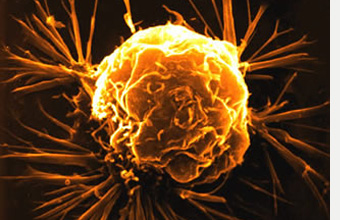This week, we’re taking a look at some of the promising discoveries that have appeared over the last few months. They all share something in common: they all have roots in our ongoing efforts to understand the human genetic code and the biological processes surrounding it, part of a trend that’s opening up a whole range of new cures and treatments.
Pharmaceutical discoveries and possible new treatments

Photo source: news-medical.net
Messenger RNA (mRNA) normally serves an important role in copying DNA, as part of its transmission. Clinical research-oriented company, CureVac has partnered with pharmaceutical giant Janssen to build on existing, promising research. The deal gives CureVac access to antigen sequences patented by a Janssen subsidiary.
Another promising discovery is a new drug for inherited cancer. Indeed, while all cancers are genetic mistakes, not all cancers are the same. Some are naturally occurring in every person, while others are specific only to certain circumstances or certain patients. Because of this, treatment depends on identifying the cause, and Neurofibromatosis type 2 is an inherited cancer, that up until recently was without a cure. Now, animal models of this cancer are showing a promising response to FRAX97, good news for a possible cure.
All of this, of course, is built on projects like the complete sequencing of the human genome, and increasing databanks of human genetics. While in the past, researchers had to look at things from an external level, for example following families with high incidences of heart disease to guess who carried susceptibility genes, now doctors can pinpoint at risk populations and find out what triggers people with that potential, or in this case, what makes a particular cancer unique and what its vulnerabilities are.
A New Method to Monitor Gene Activity
While in the past, pharmaceutical research may have focused on the cell level, these days some of the most cutting edge research is focused on what changes how the body expresses its genes. As you probably remember from biology class, the nuclei of your cells contain the tightly coiled genetic record needed to recreate every cell in your body and run cyclical biological processes, for example the production of certain hormones. We’re still uncovering the regularity process that controls this complicated system. Recently, the RIKEN Center for Life Science Technologies published research results revealing a new way to track precursors and mRNA activity. Right now this discovery is being used to track the behaviour or cancer cells, again a possible route to a cure.
Excited? Great! Pharmaceutical courses prepare you to participate in all the new discoveries from a unique industry-side perspective. Whether you and your HPLC training take to the lab, or you stick to spreading new discoveries through pharmaceutical sales, you can be sure that these and other research trends will have an impact on your career.
What pharmaceutical breakthrough are you most excited about?



